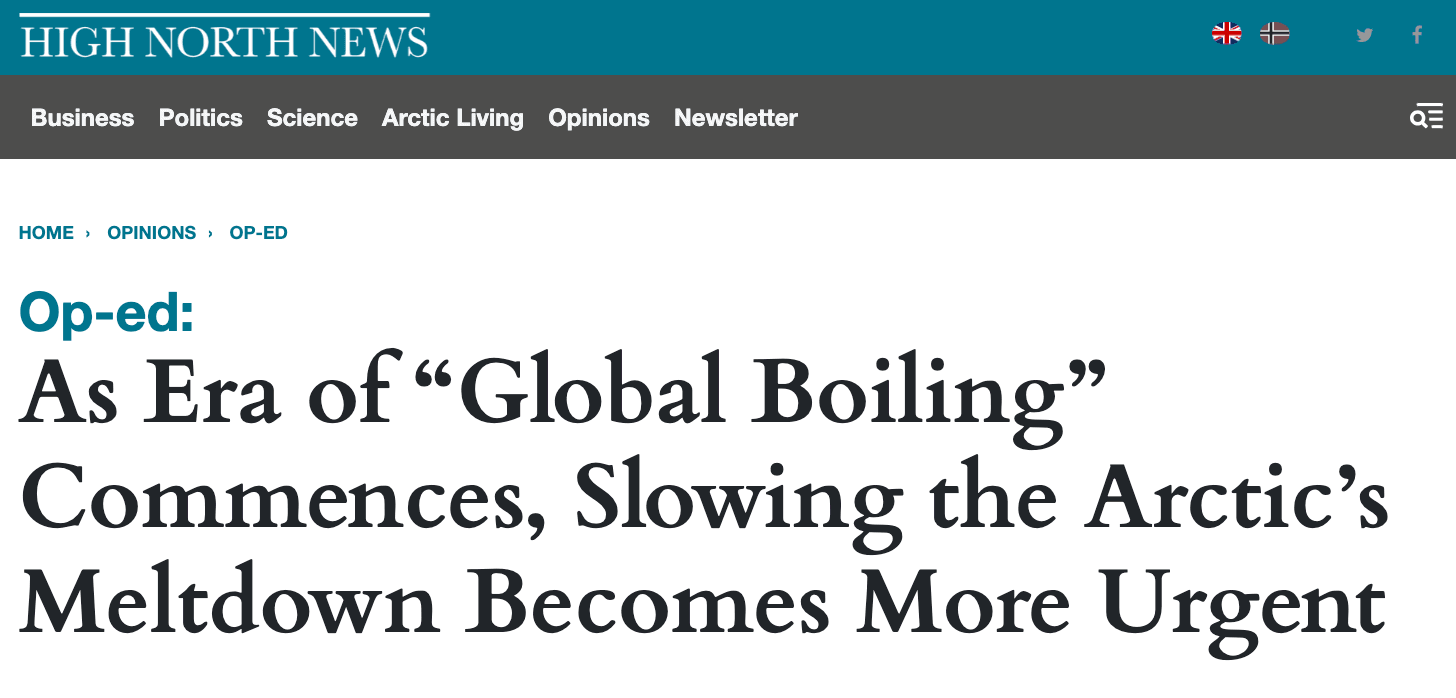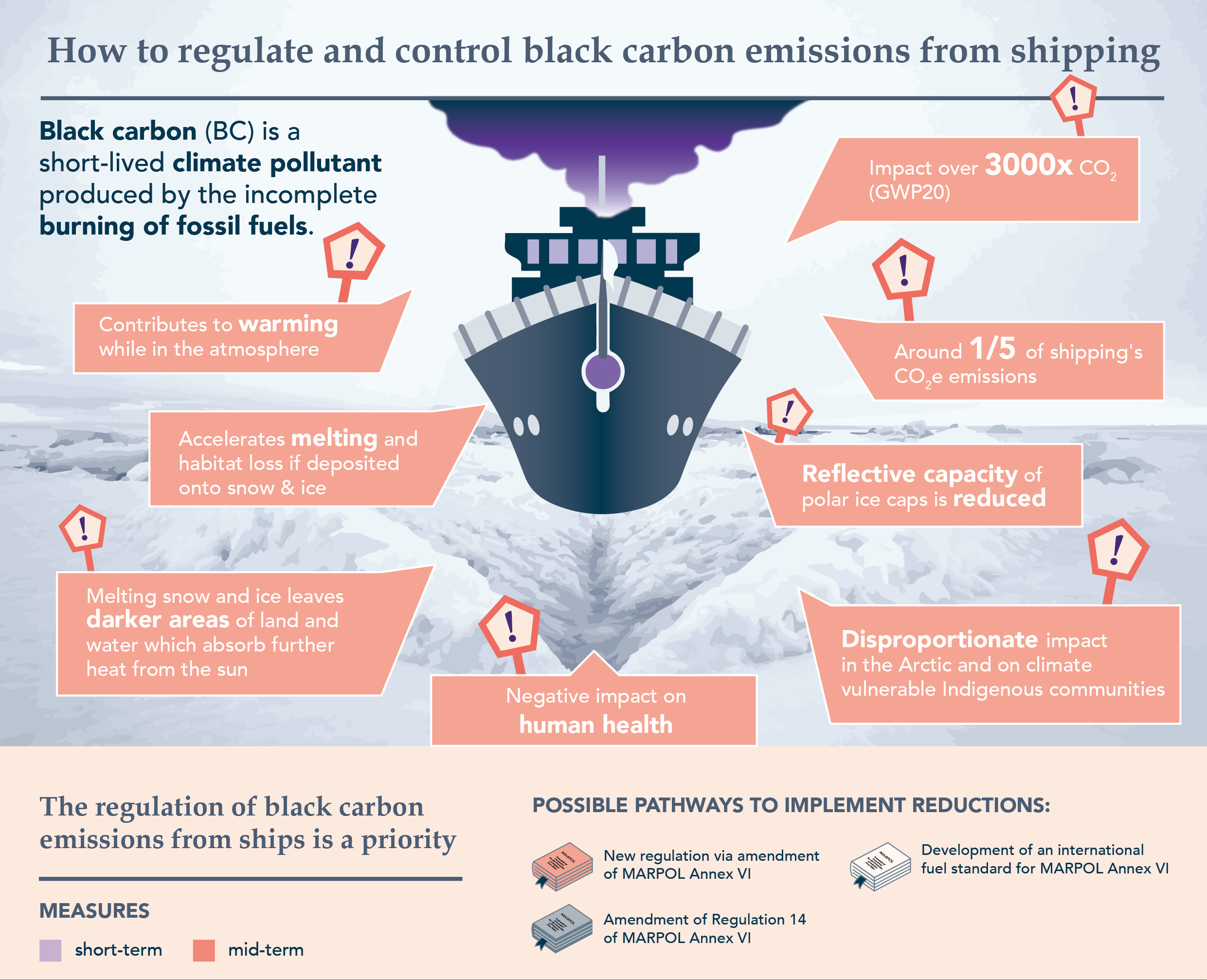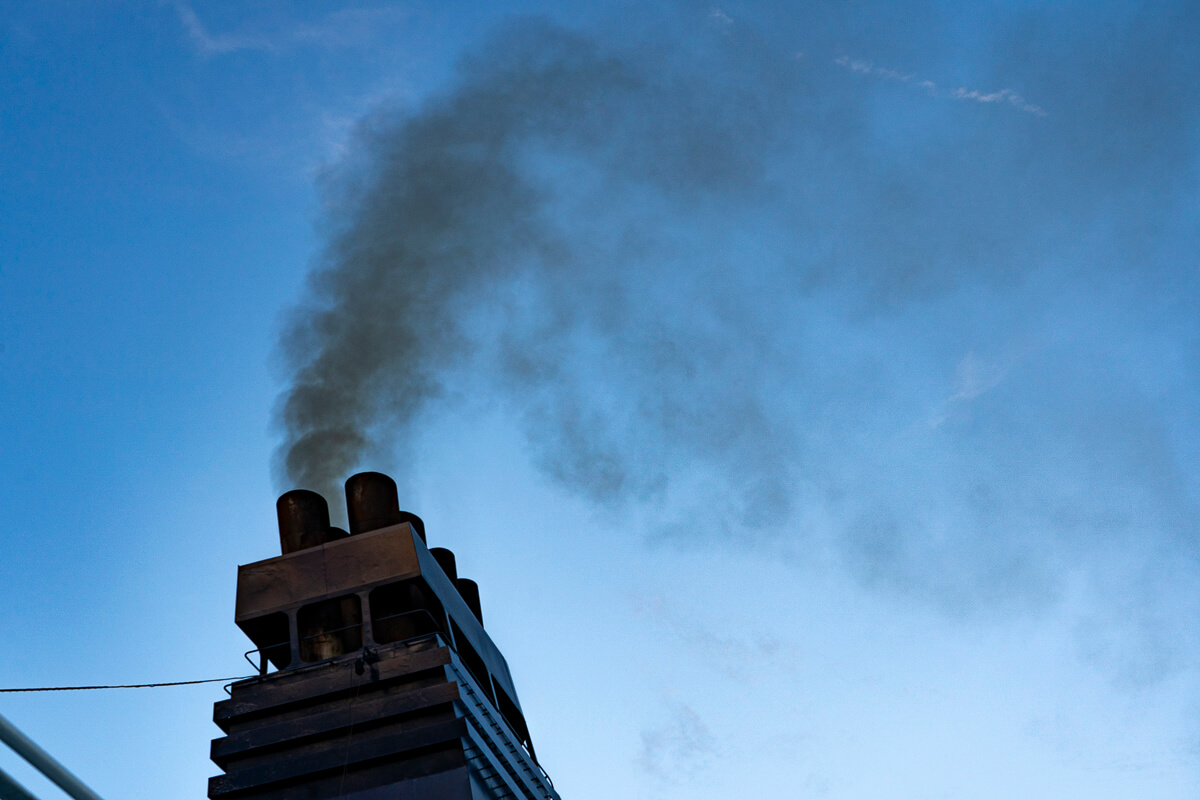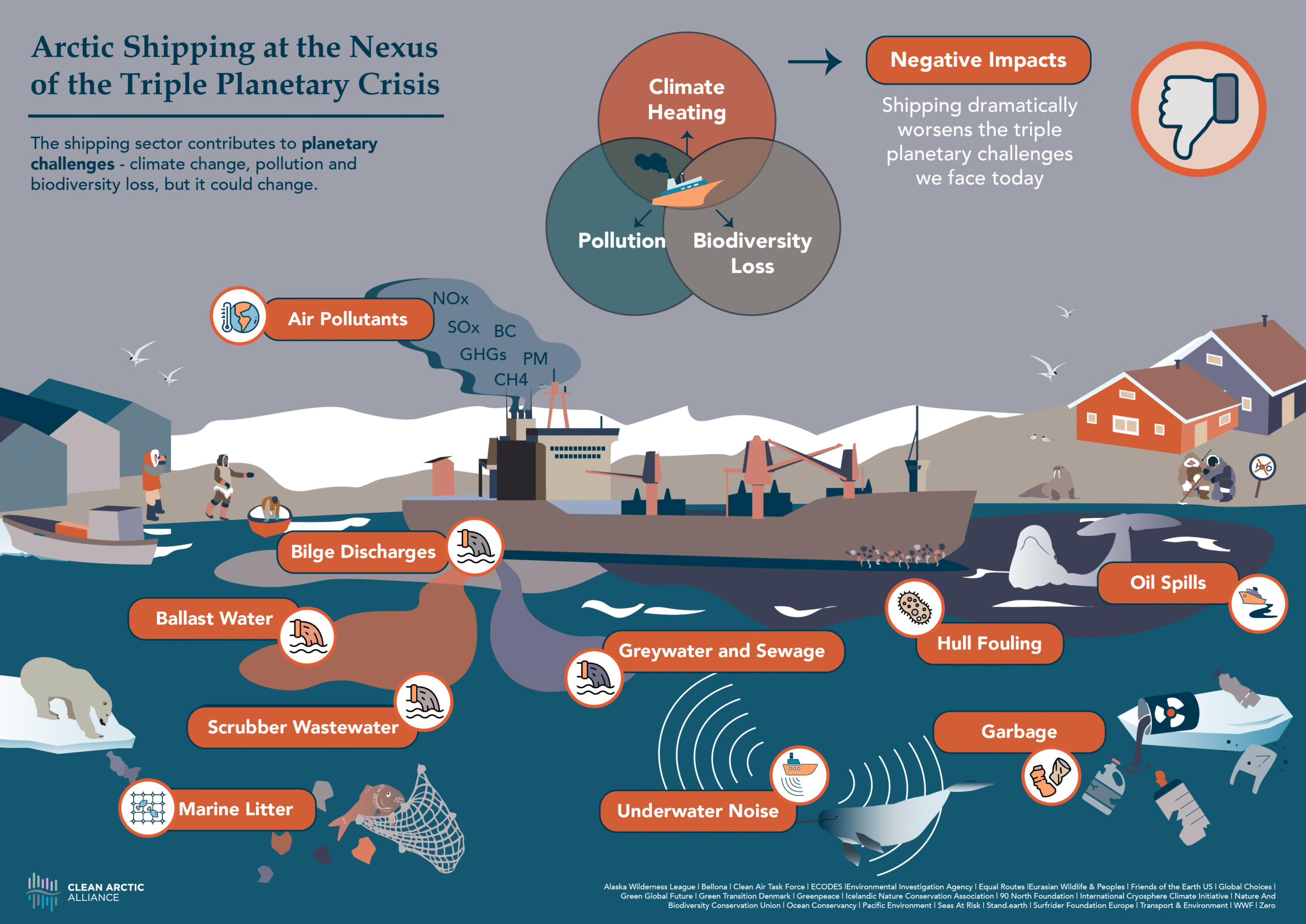
Clean Arctic Alliance calls on G20 to follow advice of its own think tank on slashing black carbon emissions
New Delhi, 5 September, 2023:- Ahead of this week’s G20 summit in New Delhi, the Clean Arctic Alliance responded to a report which details the Consequences of Arctic Amplification in a Warming World, calling on the G20 to act on the urgent action demanded by its own advisors.
The report by the Think20 group – the G20’s own official “idea bank” details the amplification driven by interlocking effects causing the Arctic to warm four times faster than the global average, including emissions of black carbon:
“The Arctic is nearly five times more sensitive to black carbon emitted in the Arctic region than from similar emissions in the mid-latitudes. In the Arctic, black carbon warms the atmosphere and darkens the snow and ice, which reduces reflectivity, since the darker surface absorbs extra solar radiation, thus causing further melting.”
In the report, the T20 urges the G20:
“To reduce the rate of Arctic warming and respond to the near-term climate emergency, the G20 should implement fast-acting strategies that cut non-CO2 super pollutants, particularly short-lived climate pollutants (SLCPs), including methane, black carbon, hydrofluorocarbons, and tropospheric ozone, which can slow warming in the near term and slow the loss of Arctic sea ice.”
“The T20 brings together think tanks and high level experts to advise and help the G20 to deliver concrete policy measures – there has never been a more urgent moment for the G20 to act on the exhortations of its own advisors”, said Dr Sian Prior, Lead Advisor to the Clean Arctic Alliance.
“Global sea ice is at a record low and sea surface temperatures are at unprecedented highs. Wildfires and heat domes have erupted across the northern hemisphere, and the Arctic is more vulnerable than ever. Global tipping points are rapidly being approached – tipping points such as the loss of the Greenland ice sheet, collapse of winter sea ice, abrupt thaw of permafrost. Blue ocean events during the Arctic summer are now predicted to happen in the coming decade as summer sea ice disappears. It is possible that the Arctic summer sea ice collapse tipping point has already been passed.”
“In April 2022, the UN Secretary General Antonio Guterres made a startling statement: ‘We are on a fast track to climate disaster. Major cities underwater, unprecedented heatwaves, terrifying storms, widespread water shortages. The extinction of a million species of plants and animals. This is not fiction or exaggeration. It is what science tells us from our current energy policies.’”
“Many were surprised, even shocked, at the tone of this statement from the Head of the United Nations – yet less than two years later, these events are becoming commonplace” said Prior.
“Global leaders must listen to the calls for action and act with urgency. For the shipping sector, which is a major contributor to climate warming, quick wins are still possible, such as speeding up the ban of the dirtiest ship fuels – and requiring all ships operating in or anywhere near the Arctic to use lighter fuels from 2024. In addition, these ships should also install exhaust particulate filters as have been required on land for decades. These changes would see a more than 90% reduction in emissions of a very potent short-lived climate forcer – black carbon.”
A recent op-ed by Kay Brown, Pacific Environment’s Arctic Policy Director, on High North News calls on the G20 to take action to protect the Arctic and significantly slow climate change.
ENDS
Further reading:
- Infographic: How to regulate and control black carbon emissions from shipping
- Black carbon in the Arctic
Contact:
Dave Walsh, Communications Advisor, [email protected], +34 691 826 764
About the Clean Arctic Alliance
Made up of 21 not-for-profit organisations, the Clean Arctic Alliance campaigns to persuade governments to take action to protect the Arctic, its wildlife and its people.
Members include: The Altai Project, Alaska Wilderness League, Bellona, Clean Air Task Force, Green Transition Denmark, Ecology and Development Foundation ECODES, Environmental Investigation Agency, Friends of the Earth US, Global Choices, Greenpeace, Iceland Nature Conservation Association, International Cryosphere Climate Initiative, Nature And Biodiversity Conservation Union, Ocean Conservancy, Pacific Environment, Seas At Risk, Surfrider Foundation Europe, Stand.Earth, Transport & Environment, WWF and Zero.
More more information visit https://www.cleanarctic.org/




